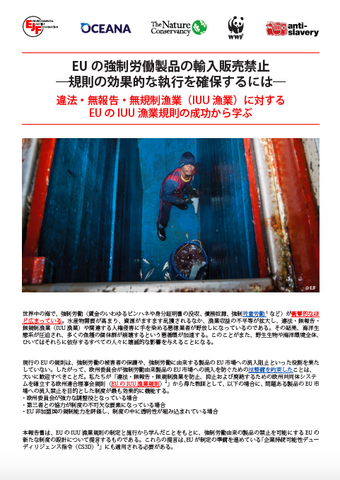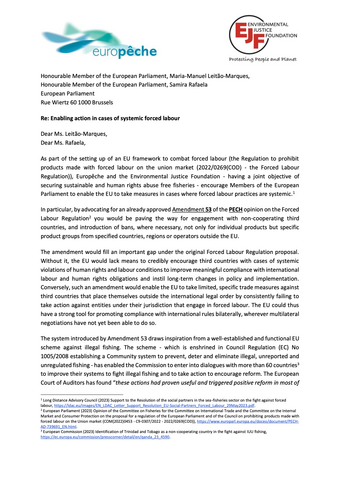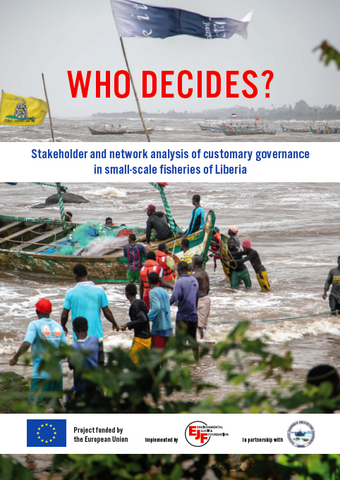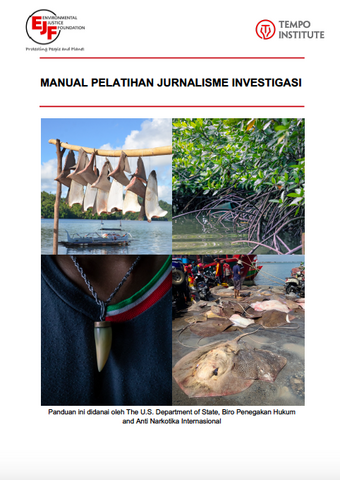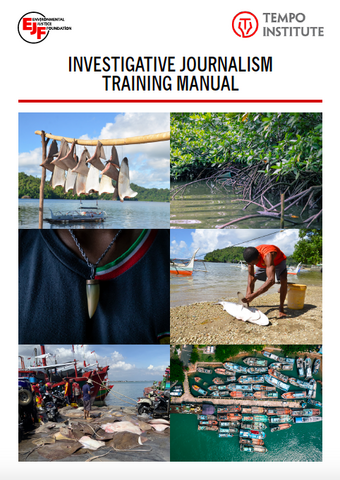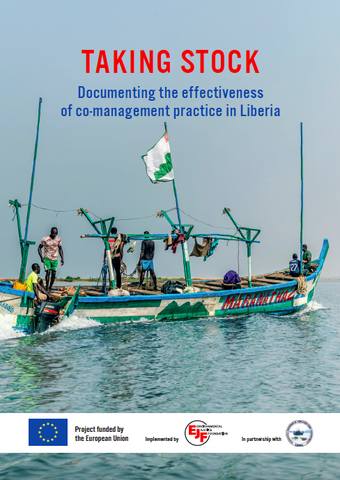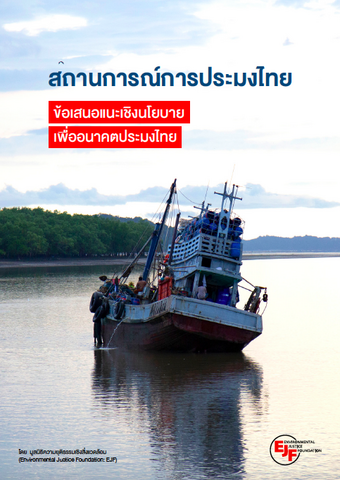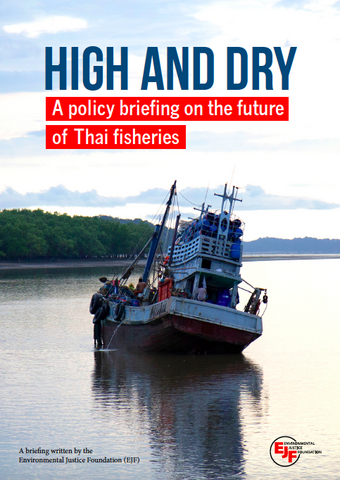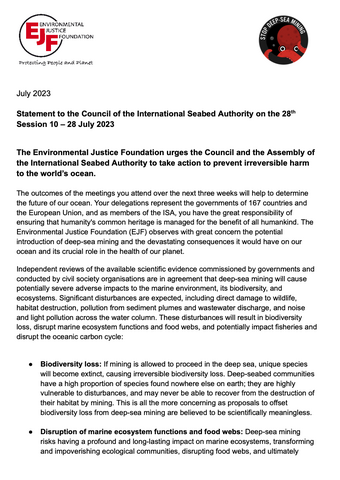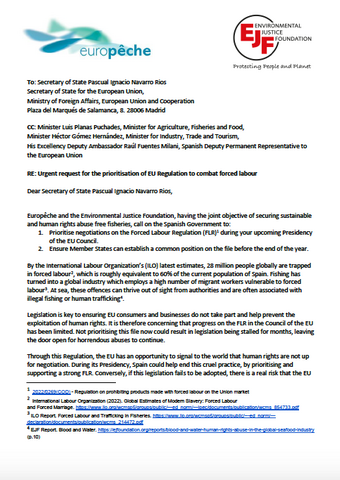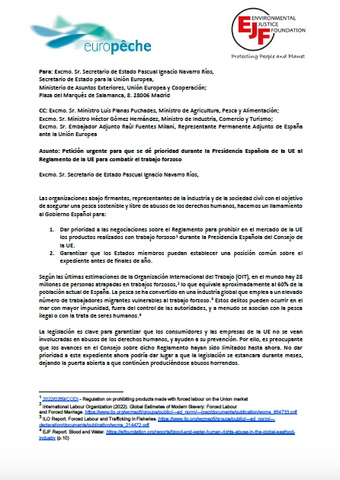Enabling action in cases of systemic forced labour: As part of the setting up of an EU framework to combat forced labour, Europêche and the Environmental Justice Foundation - having a joint objective of securing sustainable and human rights abuse free fisheries - encourage Members of the European Parliament to enable the EU to take measures in cases where forced labour practices are systemic.
Who decides? Stakeholder and network analysis of customary governance in small-scale fisheries of Liberia: The small-scale fisheries sector in Liberia relies on informal governance structures with multiple stakeholders at different leadership levels. This report analyses how these structures play an important role in addressing issues like overexploitation and unsustainable fishing practices.
Manual pelatihan jurnalisme investigasi: EJF dan Tempo Institute melalui manual ini bermaksud untuk membagikan metodologi dan teknik-teknik yang baik atau praktik terbaik dalam melakukan investigasi berbasis lapangan terhadap kejahatan-kejahatan lingkungan di Indonesia, serta menginspirasi generasi jurnalis muda berikutnya untuk menaruh minat pada pendokumentasian dan pelaporan isu-isu lingkungan.
Investigative journalism training manual: EJF and TEMPO Institute intend for this manual to share good or best practice methodologies and techniques for conducting field-based investigations into environmental crimes in Indonesia, as well as to inspire the next generation of young journalists to take an interest in documenting and reporting on environmental issues.
สถานการณ์์การประมงไทย: รายงานฉบับนี้รวบรวมความก้าวหน้าที่สำคัญของประเทศไทยในการต่อสู้กับประมงผิดกฎหมาย ขาดการรายงาน และไร้การควบคุม ตลอดจนการละเมิดสิทธิมนุษย์ชนกลางทะเล ทั้งนี้ยังได้นำเสนอข้อเสนอแนะเชิงนโยบายแก่รัฐบาลไทยในการธำรงไว้ซึ่งความก้าวหน้าและทำให้มั่นใจได้ว่าอุตสาหกรรมประมงไทยจะมีความยั่งยืนและความสามารถในการแข่งขัน
High and dry: a policy briefing on the future of Thai fisheries: This briefing outlines the significant progress made in Thailand in the fight against illegal, unreported and unregulated fishing and human rights abuses at sea. It provides recommendations for future Thai governments to secure this progress and ensure Thailand's fishing industry is sustainable and competitive.
Urgent request for the prioritisation of EU Regulation to combat forced labour: Legislation is key to ensuring EU consumers and businesses do not take part in, and help prevent, the exploitation of human rights. It is therefore concerning that progress on the Forced Labour Regulation in the Council of the EU has been limited.
Petición urgente para que se dé prioridad durante la Presidencia Española de la UE al Reglamento de la UE para combatir el trabajo forzoso: La legislación es clave para garantizar que los consumidores y las empresas de la UE no se vean involucradas en abusos de los derechos humanos, y ayuden a su prevención. Por eso, es preocupante que los avances en el Consejo sobre el Reglamento para prohibir en el mercado de la UE los productos realizados con trabajo forzoso hayan sido limitados hasta la fecha.
Urgent request for the prioritisation of EU Regulation to combat forced labour: Legislation is key to ensuring EU consumers and businesses do not take part in, and help prevent, the exploitation of human rights. It is therefore concerning that progress on the Forced Labour Regulation in the Council of the EU has been limited.
